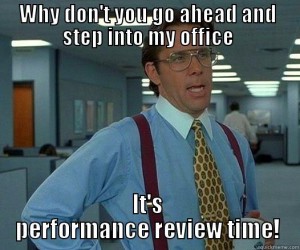Uncategorized
33 THINGS YOU USED TO OWN THAT YOURIPHONE REPLACED

Saw this article and I think it directly correlates to disruptive innovation and topics in class. The iPhone, as a new entrant, has eliminated the need for so many products. With the ability for anyone to develop apps, the iPhone can continually turn many products obsolete. Over the next few years, what else do you think the iPhone (or smartphones in general) can eliminate from our everyday lives?
http://www.supercompressor.com/tech/things-you-don-t-need-to-buy-if-you-have-an-iphone-tech-that-has-been-replaced-by-your-iphone
Regulatory Disruption
So I found this interesting article by Ron Klain, a high level aid in both the Obama and Clinton administrations. The article tackles start-ups up coming battle with regulators in Washington. As we discussed disruptive innovations in class one of the topics we touched on was the affect of laws on businesses. The upcoming debates in Washington have large ramifications in multiple industries. Some proposals run the risk of completely killing industries that are trying to get of the ground (like drones, and financial technology). Other possible laws in regards to privacy/cyber security and medical devices see new regulations of possibly exploding a new start-up craze.
http://techcrunch.com/2015/03/22/the-regulatory-fault-line-for-startups-moves-to-washington/
Here is the link to the article. What do you see happening in these fields? Are drones our future or are they too risky? Or after all the recent hacking headlines will the government crackdown and open a large cyber security market?
Crowdfunding / Disruptive Innovation

I found this interesting article about how a company crowdfunded protein bars made of crickets and it made me come to an interesting realization. Crowdfunding (the practice of funding a project or venture by raising many small amounts of money from a large number of people),
can enable anyone to disrupt any industry. Some companies consume all the market share simply because competitors don’t have the ability or resources to enter that industry. But with the ability to put your idea or product out on Kickstart, Indigogo, or one of the many crowdfunding platforms, it enables anyone to test the market and feasibility with consumer backing.
Do you think crowdfunding could have a direct correlation to disruption?
http://mashable.com/2015/03/22/cricket-protein-bar/
9 Things You Should Tell Your Boss At Your Next Performance Review
I read an article in Forbes that talks about 9 things you should tell your boss at your next performance review. Forbes asked 9 entrepreneurs from the Young Entrepreneur Council what they wish their employees would tell them at their next performance review.
1) What makes you happy
2) How you want to grow
3) What you would like to work on
4) How you picture the future
5) How do you want to contribute to the company’s success
6) What you need to do for your best work
7) Which new technologies would work a lot better
8) What you want your boss to stop doing
9) What is not working, and how to make it better
These questions will help you in your next performance review with your boss and it shows you are dedicated to the success of the company and it also shows you are a dedicated employee. These questions will also help your boss become a better leader.
What do you think about this article and these questions? Do you think these questions should be answered by your boss after you have been with the company for a couple of years?
http://www.forbes.com/sites/dailymuse/2014/03/12/9-things-you-should-tell-your-boss-at-your-next-performance-review/
Autonomous Attack Aircraft

For my disruptive innovation case I had the topic of autonomous vehicles. In an article I found on justsecurity.org, Michael Horowitz and Paul Scharre discuss three areas of concern related to fully autonomous aircraft. First area of concern is related to accountability. If autonomous aircraft fail to do their job properly, who’s at fault? Another issue is the off-loading of moral responsibility for killing, which could lead to unnecessary deaths. Finally, if an autonomous aircraft became out of control, there could be serious damage inflicted to innocent people or casualties to friendly fire. Because of these concerns, many people advocate a level of human control over these aircraft because humans can make better informed decisions for a particular situation. Because of this, there is a debate over what is the right amount of autonomy and human control.
How much human control do you think is necessary and what functions should be autonomous in an attack aircraft? Or, do you think it is possible to have a fully autonomous attack aircraft? If yes, how would you mitigate the concerns mentioned above?
Deloitte Replacing Performance Evaluations With Four Simple Questions
According to The Washing Post, “Research shown to be ineffective, unreliable and unsatisfactory for seemingly everyone involved. They consume way too much time, leave most workers deflated and feel increasingly out of step with reality.”
Deloitte has redesigned its whole performance management plan and how it will evaluate its employees. Deloitte’s is getting rid of nonsensical attempts to build similar goals for everyone in the organization. The company also noticed they were spending two million hours each year assigning numerical ratings to each employee so they got rid of that too.
Overall, Deloitte is replacing its old performance system with four engaging questions they are asking managers to look at instead. Washing Post stated, “At the end of every project, or once a quarter if employees have long-term assignments, managers would answer four simple questions — and only four. The first two are answered on a five-point scale, from “strongly agree” to “strongly disagree;” the second two have yes or no options:”
1. Given what I know of this person’s performance, and if it were my money, I would award this person the highest possible compensation increase and bonus.
2. Given what I know of this person’s performance, I would always want him or her on my team.
3. This person is at risk for low performance.
4. This person is ready for promotion today.
This new performance allows how to develop employees in the future based on their performance.
Based on this article/post, do you think organizations should start following this new approach? Would you prefer to be evaluated on these questions or have a standard performance evaluation review? Why?
http://www.washingtonpost.com/blogs/on-leadership/wp/2015/03/17/deloitte-ditches-performance-rankings-and-instead-will-ask-four-simple-questions/
Roger Martin Coined Integrative Thinking
http://rogerlmartin.com/thought-pillars/integrative-thinking
Roger Martin coined the word “integrative thinking” when he observed in his multiyear study of exceptional successful leaders. He found a consistent pattern to the leaders thinking approach when they were faced with challenging choices. In 2007, Roger published a book called The Opposable Mind: How Successful Leaders Win Through Integrative Thinking. The book describes the components of Integrative Thinking and provides a guide for those who want to manage their own Integrative Thinking capacity. Roger states, “Many people assume that Integrative Thinking is a skill which one must be born to demonstrate. This is definitively not the case! It is clear from this teaching experience that anyone who is willing to work at Integrative Thinking can develop the thinking pattern exhibited by the highly successful leaders that I studied.” I agree with Rogers statement because not every successful leader is born with every skill set to make them successful.
Do you think integrative thinking is an easy skill to learn? How much time do you think you need to put into learning the skill set of an integrative thinker?
NINTENDO IS FINALLY BRINGING MARIO TO MOBILE PHONES
After a very long wait, nintendo is finally bringing its beloved games to mobile devices. Nintendo, like many others, was the incumbent for the longest time in the gaming industry. When smartphones came out, it heavily disrupted the handheld gaming industry because consumers were finding it much easier to download their favorite games directly to their phone. Why carry around two devices when you don’t need to? Nintendo stuck to their guns about only distributing their software on Nintendo only hardware, but finally gave in to the demand. In my opinion, they could heavily disrupt the gaming apps being sold not the app store and really reclaim market share. Thoughts?
http://www.wired.com/2015/03/nintendo-dena-mobile/?mbid=social_fb
We can change the way we think!
Summary of “How Successful People Think”
Integrative thinking is in some way or another an art form, but also is something that can be learned, practiced, and built upon throughout a life time. I believe in order to become an integrative thinker we first need to learn how to think better. “How Successful People Think” by John C Maxwell is a book that addresses 11 skills of a good thinker possess, and how to adopt these skills. These 11 skills are:
1)Big picture thinking
2)Focused thinking
3)Creative thinking
4)Realistic thinking
5)Strategic thinking
6)Possibility thinking
7)Reflective thinking
8)Popular thinking
9)Shared thinking
10)Unselfish thinking
11)Bottom-line thinking
Maxwell’s quote “If you embrace unpopular thinking and make decisions based upon what works best and what is right rather than what is commonly accepted, know this: in your early years you won’t be as wrong as people think you are. In your later years, you won’t be as right as people think you are. And through all the years, you will be better than you thought you could be.”
Maxwell says we can develop these skills during ordinary daily routines. Does anyone have any ideas how they would practice one of the 11 skills in their daily life?
How to Get the Job When You Don’t Have the Experience
“The Permission Paradox” – You can’t get the job without the experience but you can’t get the experience without the job – is one of the great career Catch-22s.
I came across this article on Linkedin, while I was scrolling for jobs. Almost every job I came across required 3-5 years of professional experience. How can I have experience if I cant get a first job? Well, James Citrin, author of The Career Playbook, tells you how in just 5 steps. Reading this article gave me confidence that not all requirements are so black and white.
James gives a few pointers that stuck with me after reading:
1. Be willing to start at the bottom. Just because we have a degree, doesn’t mean we should automatically get a high paid salary in a fortune 500 company. Sometimes you need to work up the ladder.
2. Re-imagine your experience. Have you ever planned a spring break with your friends? That counts as some type of “project managing” right? It was your responsibility to collect money, work with budgets, and research unknown variables of the trip.
To those of you who are still searching for jobs or have already gotten an offer, have you used creative stories like these in interviews to fill an under qualified job requirement?








